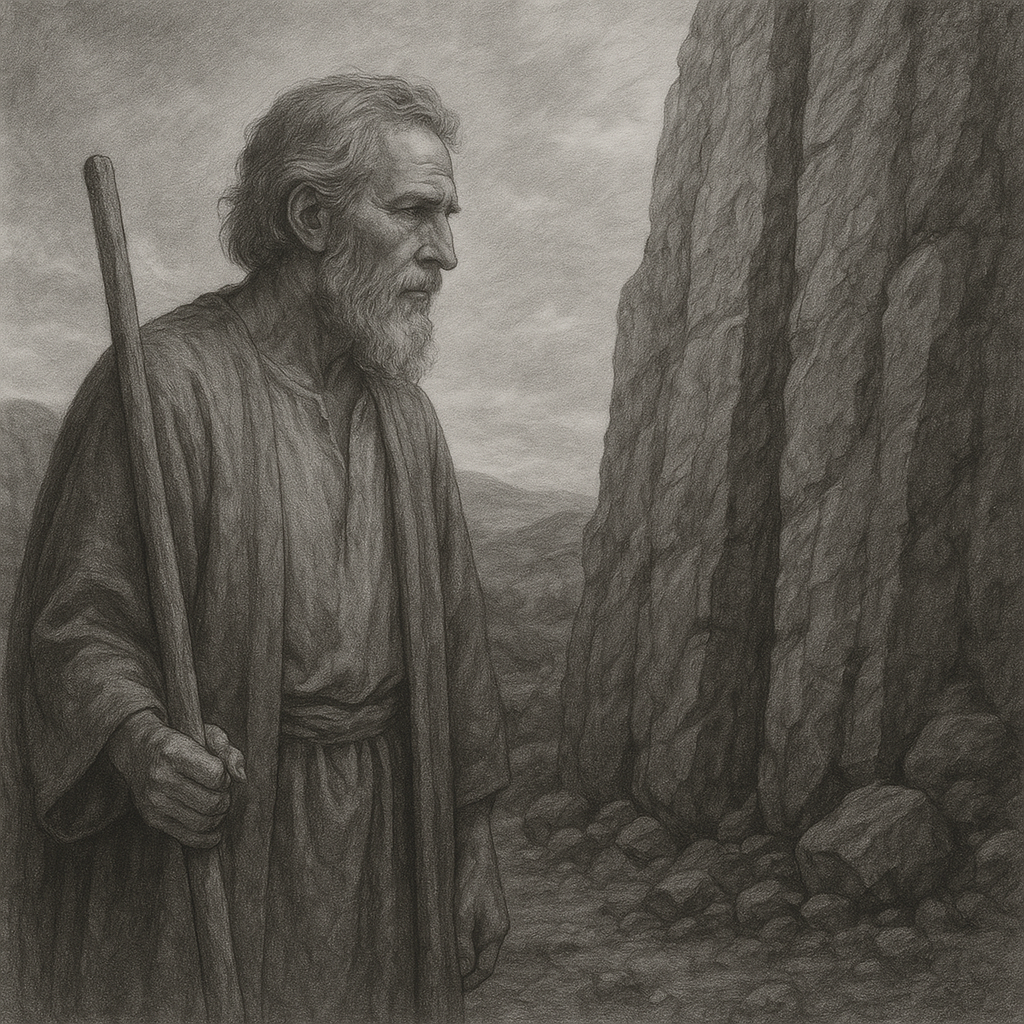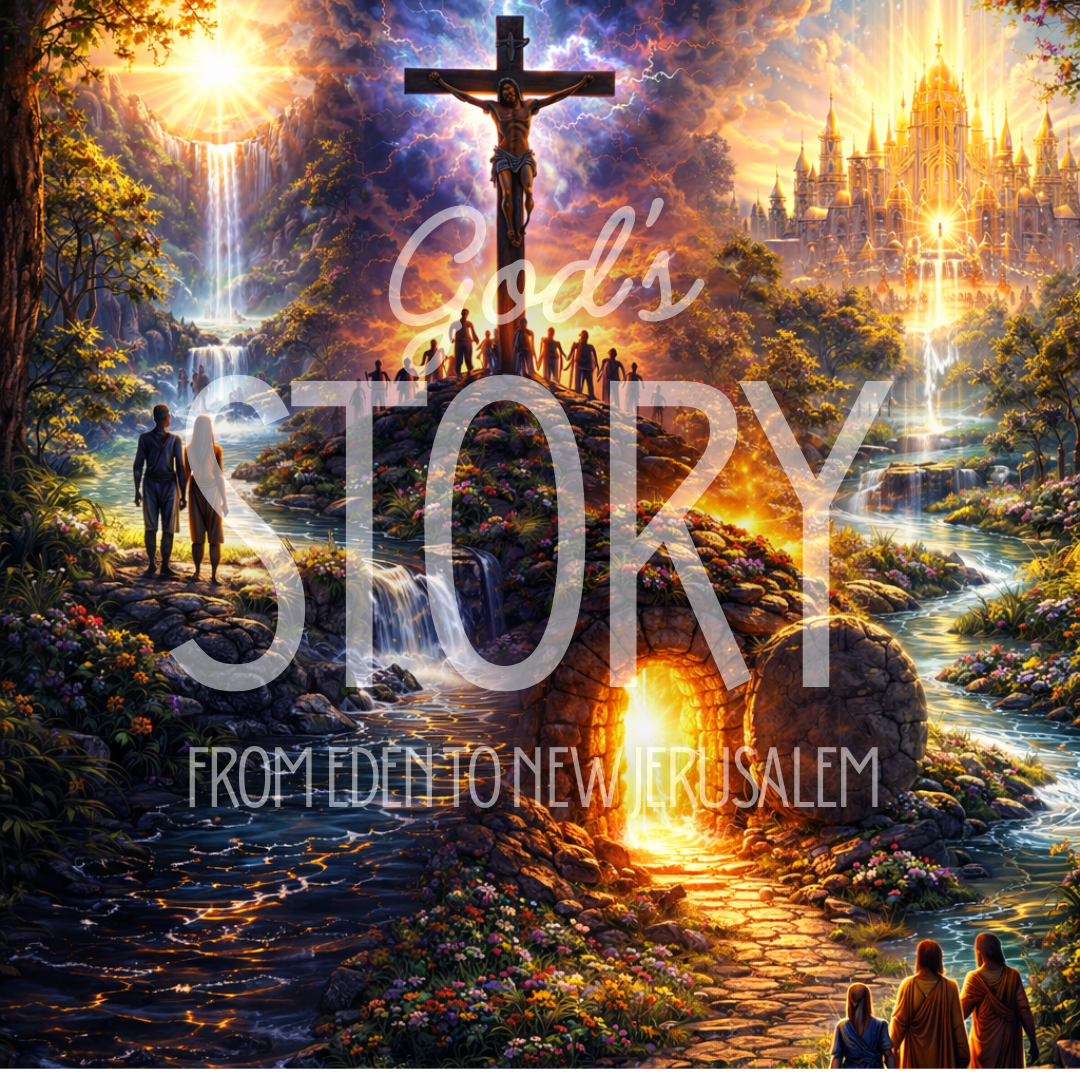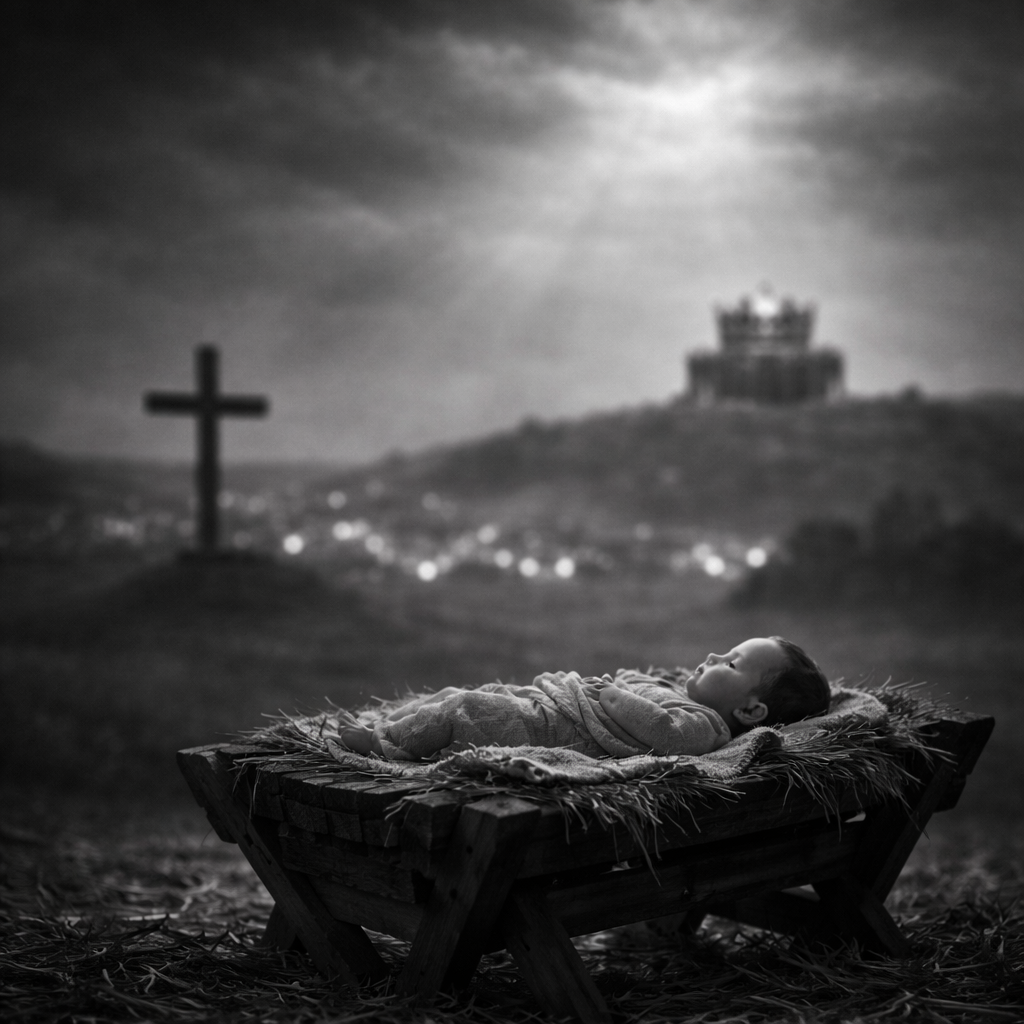Talking to Rocks
In Exodus 17, Israel is thirsty at Rephidim and ready to turn on Moses. God tells him to strike the rock at Horeb. But here’s the detail we can’t miss: God says He will stand there right between the rock and the people.
“I am going to stand there in front of you on the rock at Horeb. When you hit the rock, water will come out of it and the people will drink.” So Moses did this in the sight of the elders of Israel. He named the place Massah and Meribah because the Israelites complained and because they tested the Lord, saying, ‘Is the Lord among us or not?’ (Exodus 17:6–7)
When Moses raises his staff and brings it down, the blow doesn’t just land on stone. It falls where God is standing. It’s as if God absorbs the strike so His people can live. Water gushes out. The people drink. And the place is named Massah and Meribah because they quarreled and tested the Lord.
That moment points us forward to Jesus who is the One who was struck for us so that living water could flow into our lives.
But the story doesn’t end there.
In Numbers 20, decades later, the people complain again. This time they’re at Kadesh in the Desert of Zin. Once again, the place is named Meribah, meaning “quarreling”, because Israel is still stuck in the same pattern.
“The people quarreled with Moses and said, ‘If only we had perished when our brothers perished before the Lord. Why have you brought the Lord’s assembly into this wilderness for us and our livestock to die here? Why have you led us up from Egypt to this place? It is not a place of grain, figs, vines, and pomegranates, and there is no water to drink!’” (Numbers 20:3–5)
But God’s instruction changes.
“Take the staff and assemble the community. You and your brother Aaron are to speak to the rock while they watch, and it will yield its water. You will bring out water for them from the rock and provide drink for the community and their livestock.” (Numbers 20:8)
“Take the staff,” He tells Moses, “and speak to the rock”. Not strike. Speak. Because God’s Word has always been enough. In Genesis 1, He spoke creation into order. Here, He wanted Moses to demonstrate His power by speaking life where there was none. Life came by His Word, not by human force.
Instead, Moses snaps.
“Then Moses raised his hand and struck the rock twice with his staff, so that abundant water gushed out, and the community and their livestock drank. But the Lord said to Moses and Aaron, ‘Because you did not trust me to demonstrate my holiness in the sight of the Israelites, you will not bring this assembly into the land I have given them.’” (Numbers 20:11–12)
He yells at the people, lifts his hand, and strikes the rock not once but twice. And notice what’s missing: in this moment, the text doesn’t say God stood between the people and the rock. Moses storms forward, putting himself in that place as though he were the one to bear the burden, as though he were the one who could produce life on his own terms.
But that role doesn’t belong to Moses. It belongs only to God. By acting out of anger and mistrust, Moses misrepresents God to His people, and he robs God of glory. That’s why both he and Aaron are barred from entering the Promised Land. Even so, God was still faithful by providing water.
There’s a sobering lesson here. In Exodus 17, God Himself takes the blow for His people. In Numbers 20, a frustrated leader takes matters into his own hands and it costs him dearly.
Two strikes. Two leaders.
I think this might be an echo of Adam and Eve. In the Garden, the scene (Genesis 3) reflects an act of taking matters into their own hands. These two acts of grasping happened instead of trusting. Either way, the contrast is clear: God’s way brings life, our way drains it.
Honestly, isn’t that the pull we feel too? When people frustrate us, when life feels dry, when obedience feels slower than forcing our way through, the reality is it’s easy to strike the rock in our own strength. But that’s not what God asked. He told Moses to speak. To trust. To let His Word bring forth the water. And he asks us the same. Do we trust God?
Because God’s Word still creates, sustains, and provides.
So here’s our question: When the pressure builds, are you striking rocks in anger or trusting God enough to simply speak?
—
If you resonate with any of this and like it, please share this with someone who you think will benefit from reading it too.
If you found value in this, here are some additional articles for you.





